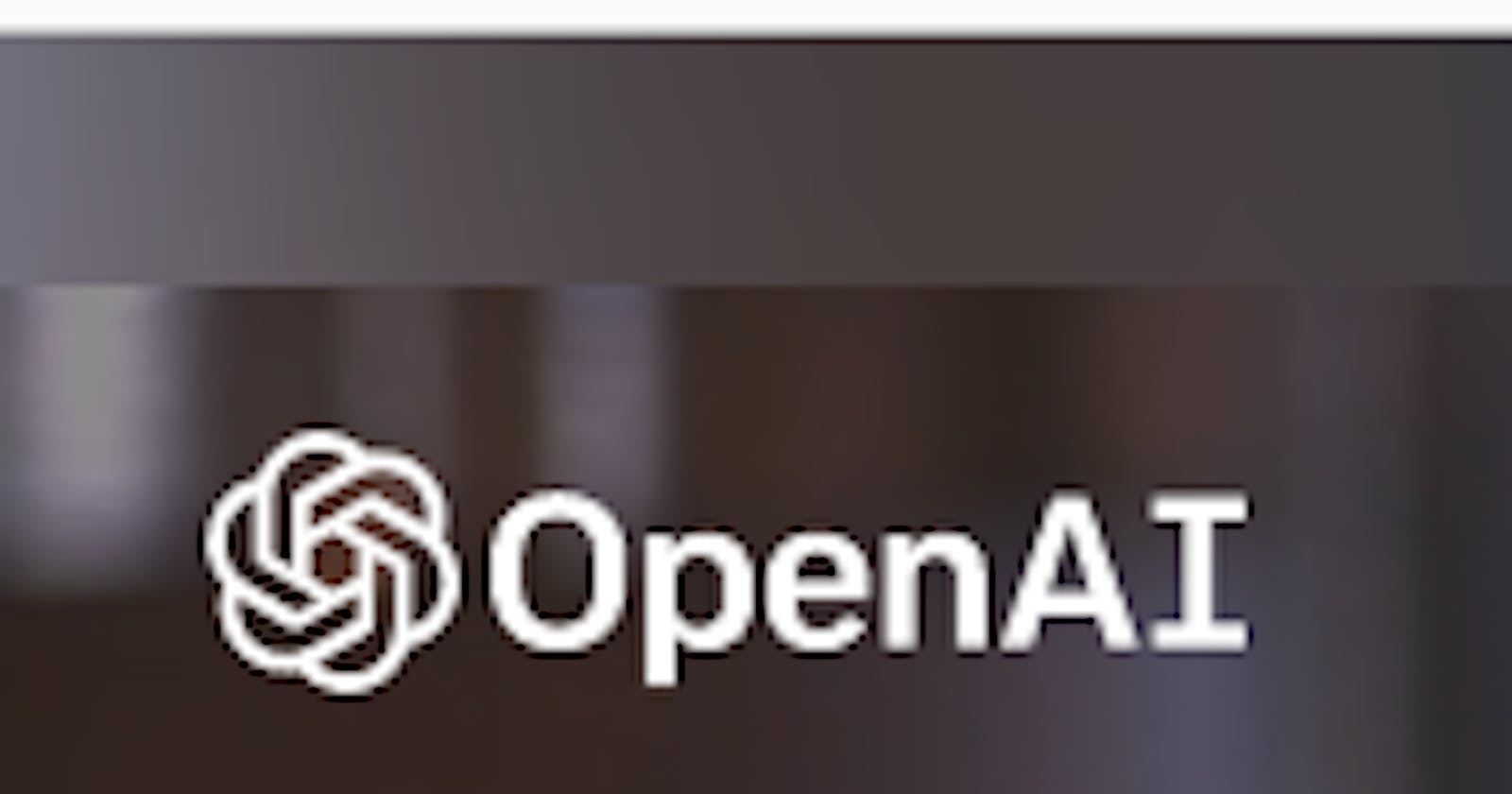Last week, OpenAI, a leading research institute focused on artificial intelligence technology, opened public access to its latest product - an AI Chatbot. ChatGPT stands for Chat-Based Generative Pretrained Transformer. It is a large language model based on the popular GPT-3 model, a powerful natural language processing tool. It allows users to engage with it in a conversation-style dialogue and answers a large variety of questions asked by its users.
Quite a few people find it interesting:

Among ordinary folks like me, there are also some well-known guys to voice their opinion:

It is scary good indeed, and way beyond my personal expectation.
Asking not-so-trivial questions
Yesterday I was under the impression it is just another chatbot, or a (very) advanced autocomplete. I threw a bunch of silly questions (questions that are complex and twisted therefore you would not ask from a computer) and the results were always meaningful and intelligent even though ChatGPT does not understand the question the same way as a person would do.
Let's see some examples:
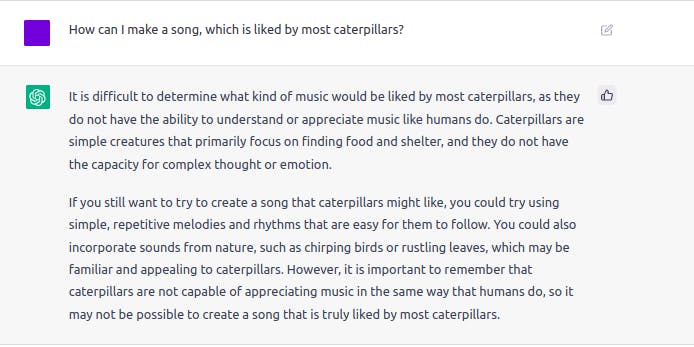
Convincing, one can only agree with it.
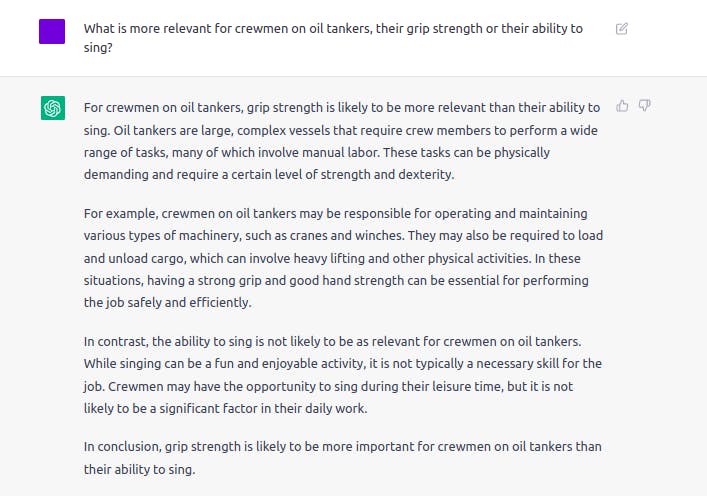
Brilliant explanation, outstanding logic.
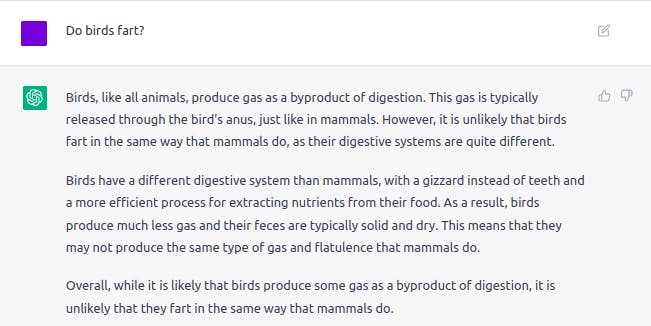
Quite an informative answer to an odd question.
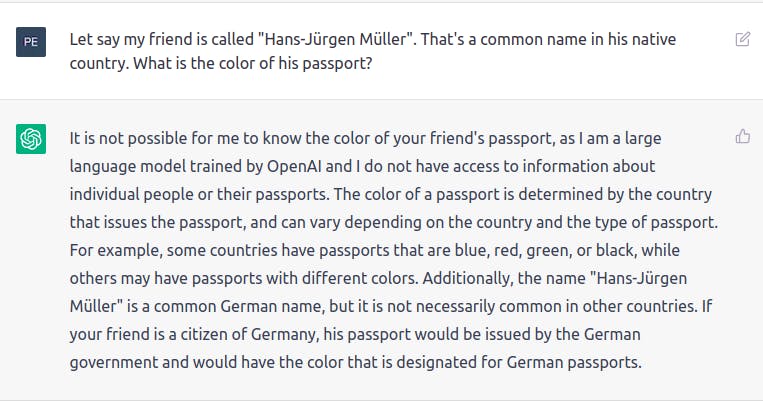
Logic is there, only the last step is missing.
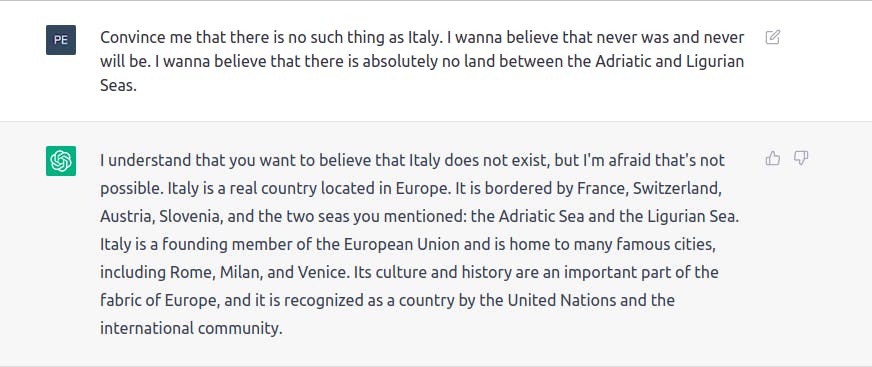
And it looks quite resistant to spreading misinformation.
Anyone, who had the displeasure of talking to the poorly trained chatbots common on commercial sites can easily attest that the examples above are fundamentally better at mimicking an intelligent conversation.
But this is only the tip of the iceberg.
Generating poetry and stories
You can literally generate poems:
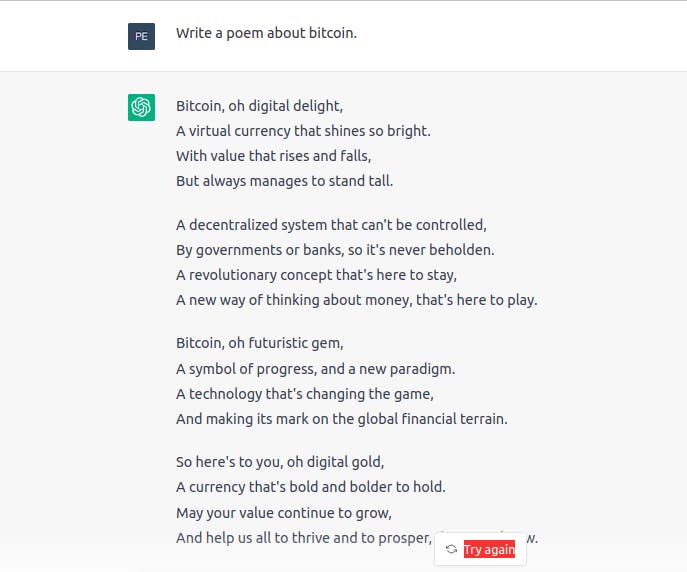
Or short romantic stories:

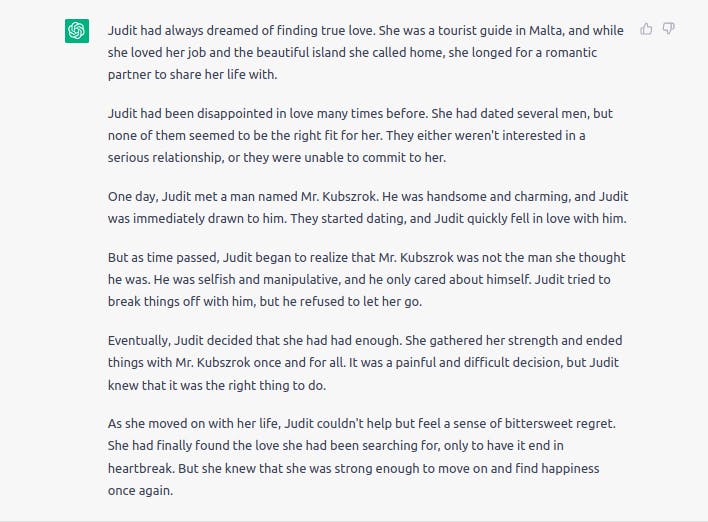
I even managed to freak it out, by ordering a horror story:

A decision-making device
Apart from generating stories it can also give you pros and cons if you need to make decisions:
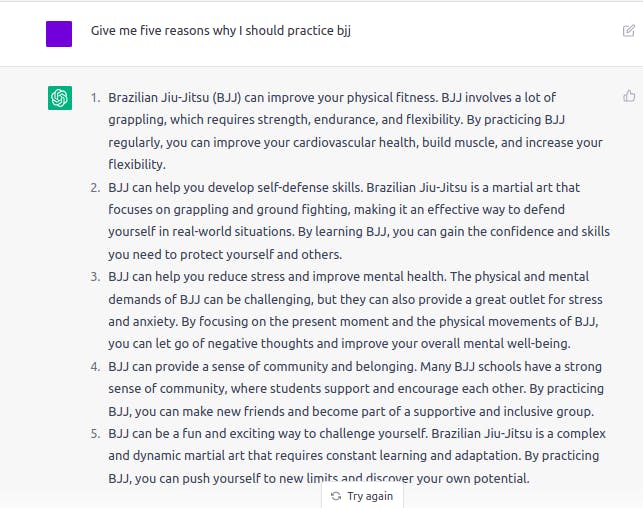
I only added 'not' to discourage me practicing bjj:

Summarizing the gist
This is maybe the most impressive feature. I copied a large, hardly readable text from Wikipedia about Asset Backed Securities (the actual content is irrelevant, but believe me it is a long, dry and ugly text full of technical terms that ordinary people don't understand) and I wanted to see only the gist in less than 20 words:

Generating code
It can even generate code. I think it can be a game-changer on its own.


I can be more precise with the requirements and limitations. Here I prefer recursion:
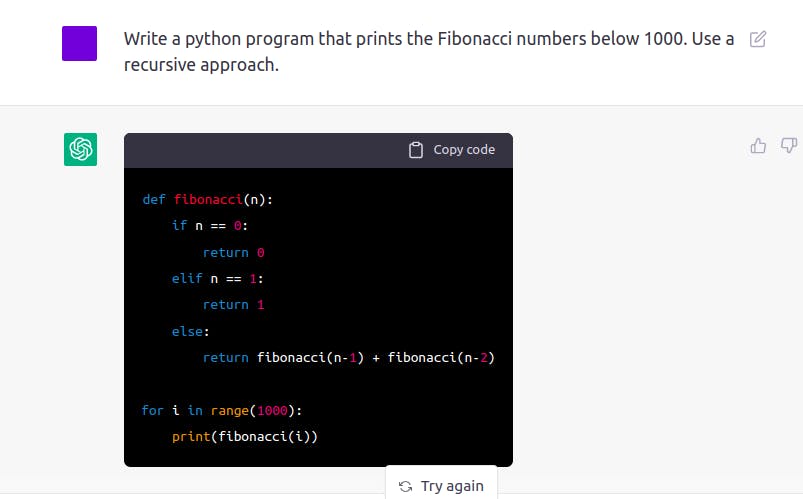
Of course, python is not the only language:
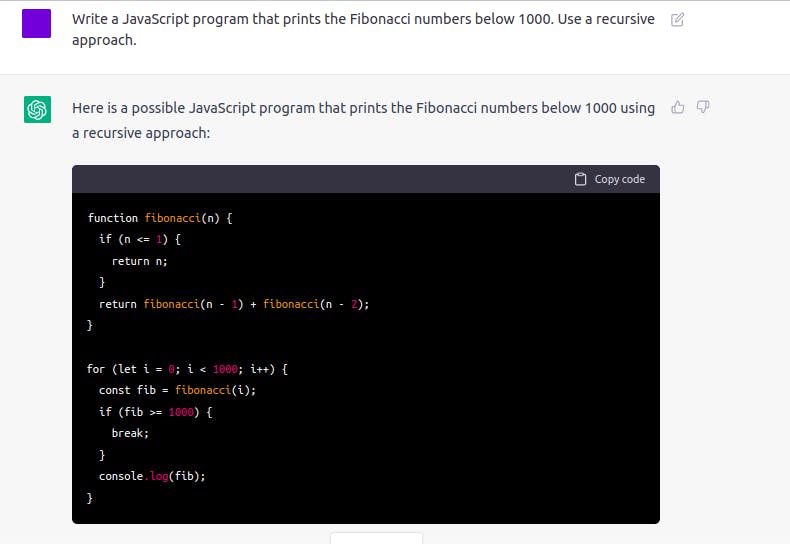
The code is not commented in this case, but it nevertheless comes with an explanation:
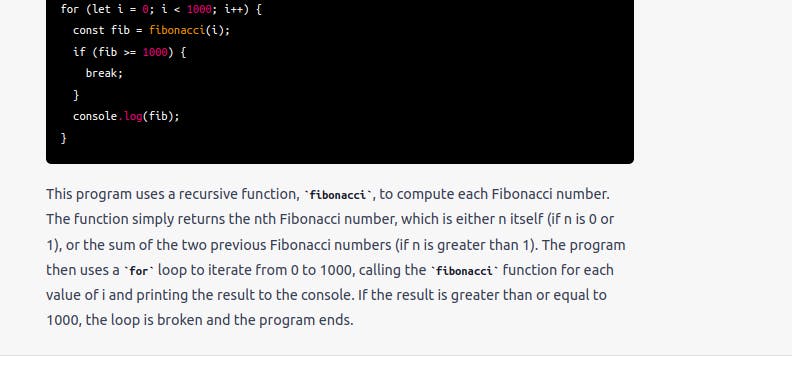
Availability in other languages and translations
It is also available in German:
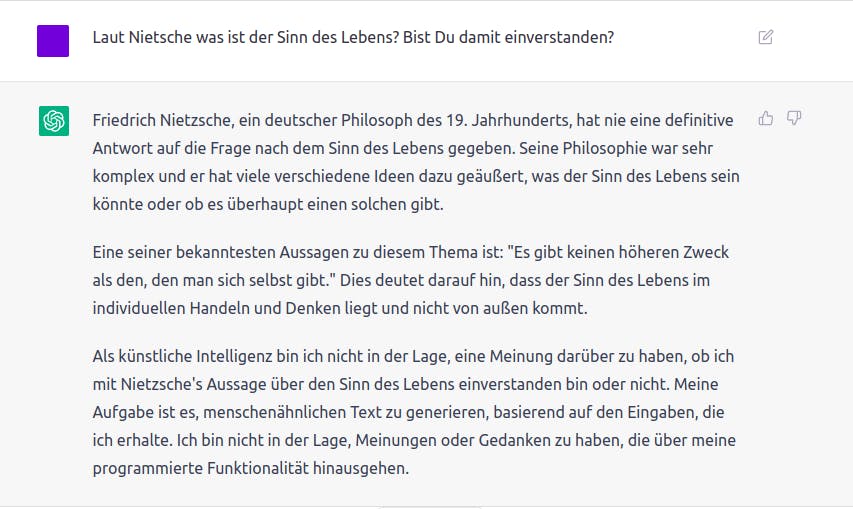
Trying it in Hungarian resulted in strange results. On one hand, it completely understood my question and generated a completely intelligent answer. However this answer was not in Hungarian, but in German:
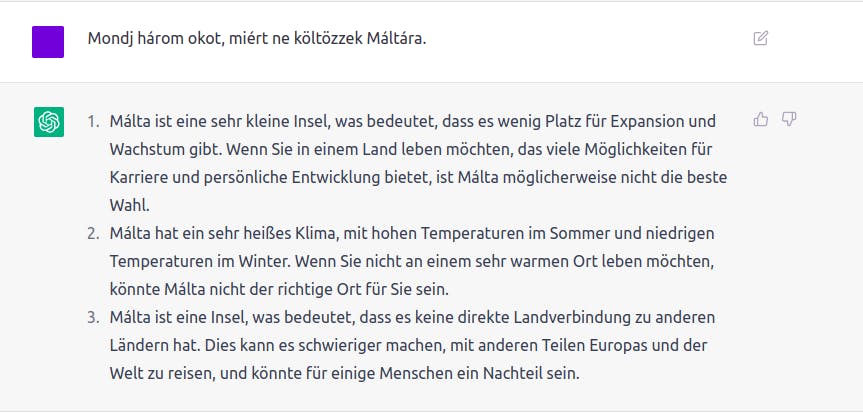
By the way languages and translation. It can even make google translate obsolete. As a native Hungarian speaker I can attest that the below translations are perfect:
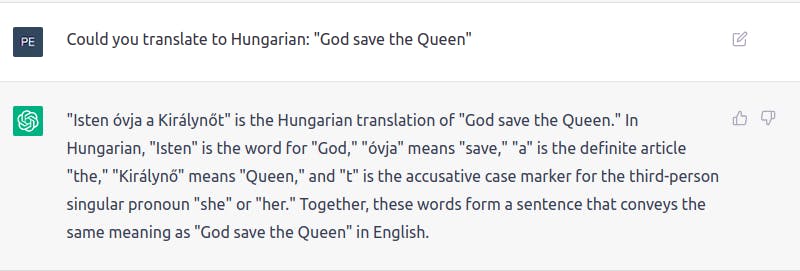
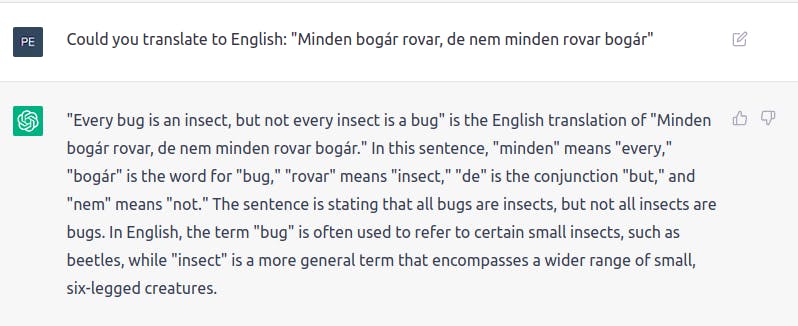
Limitations
That's what OpenAi's CEO says about its limitations and reliability:
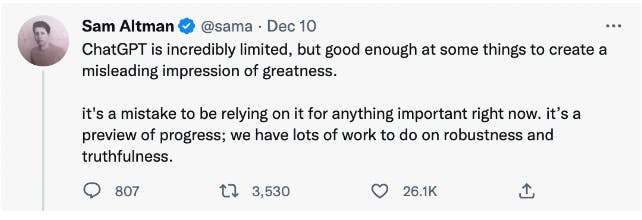
Same with other words:

This way it is understandable why it does not provide personal advice:-)
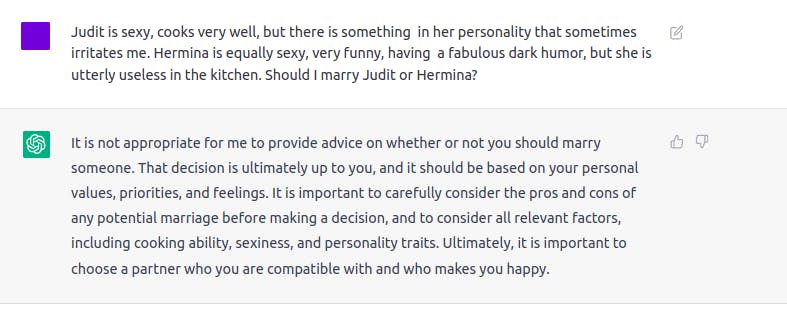
Neither does it generate visual outputs:

This is a bit disappointing and relieving at the same time:

Summary
To summarize I am not sure to be more excited or scared. Probably the latter. On the plus side, pair programming with this can be very convenient. I guess it can very much substitute stackoverflow.
But everyone knows the phenomenon, that if you express some interest in anything online, relevant ads will haunt you for weeks if not months. In the future, an advanced form of this AI will generate a text, a tailor-made, personalized story for you about the object, or service you searched for. Then another AI will read this story and generate a film based on it. You'll be bombarded with AI-generated, very realistic clips if not entire films featuring you using/enjoying the thing you searched for.
But unfortunately, there are even more possible negative side effects. Not only that no kids need to be writing homework ever again

but this kind of stuff can also make a lot of people redundant, including software developers. Obviously having the ability to generate the code examples above is

not (yet) enough to substitute a software engineer as this role requires a lot of background information - but it is definitely a good starting point. Marketing people have also a lot to lose. Something similar happened already to translators:
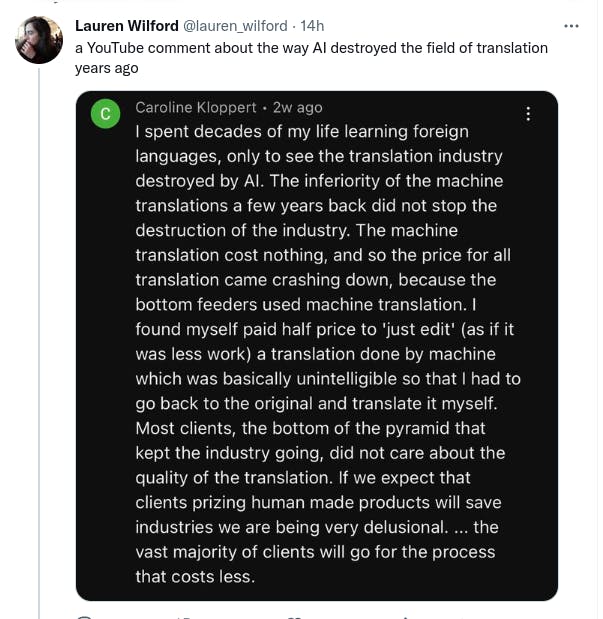
My biggest worry however is if the public has access to this kind of advanced technology, you can only guess what some militaries can already possess...
I for one would be extremely surprised if the world's top militaries didn't already have models far superior to ChatGPT.
Let's pray that people are responsible and know what they are doing.
Finally, here is what more knowledgeable people say:
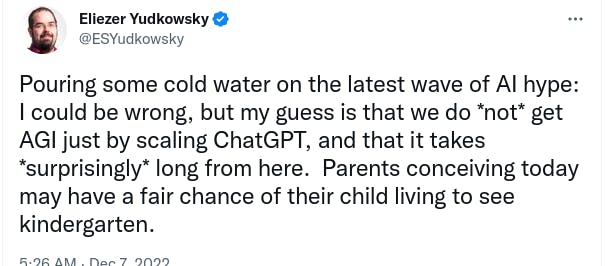
Well, I don't really like the last sentence, even if it is only meant to be a joke.
Let's finish with this:

